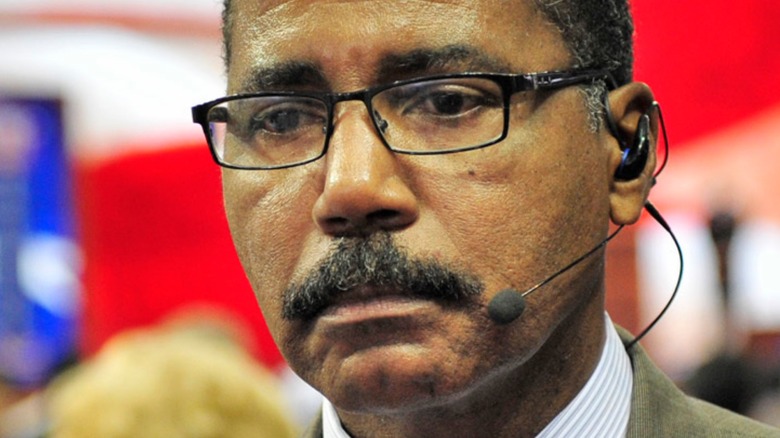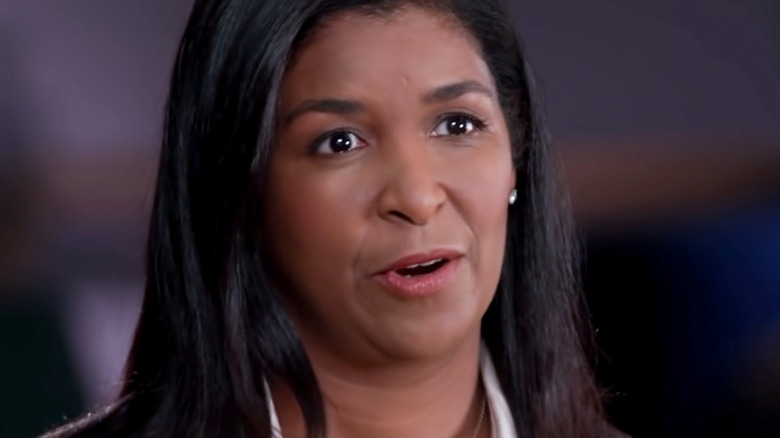The 60 Minutes Episode That Had Audiences Sending In Complaint Letters
For more than half a century, the ticking stopwatch that leads off every episode of "60 Minutes" has alerted viewers to impeccably sourced and reported investigative journalism ahead. The CBS cornerstone first aired in 1968 and has relied on the strength of its hosts and presenters to deliver compelling and important stories. Among them are some of the most trusted and recognizable names in television journalism: Lesley Stahl, Mike Wallace, Ed Bradley, Bill Whitaker, Anderson Cooper, Dan Rather, and so on.
In its more than 2,000 episodes, the show has earned its position as an investigative powerhouse, and usually tells its stories with sensitivity and balance. "60 Minutes" episodes run the gamut from thought-provoking to haunting, but almost always cover their subjects thoroughly and effectively.
Surprisingly, though, there was one episode that raised the ire of "60 Minutes" viewers, who thought the show did a poor job of representing the truth behind the story. Many of them sounded off on social media, and one thread featured copies of multiple long emails that viewers had sent to CBS executives criticizing the episode. But just what did "60 Minutes" do to make so many people so angry?
Viewers were unhappy with how 60 Minutes handled America's changing labor dynamics
The episode that aired on January 9, 2022, "The Big Quit," discussed the changes in the American workforce brought on by the COVID-19 pandemic. Of the four people interviewed by Bill Whitaker for the segment, two were business owners and one was an economic expert. It wasn't until nearly nine minutes in until they got to an actual employee, overworked marketing professional Melissa Williams. They didn't dig very far to find her, though — she worked for one of the business owners also featured.
According to fans, the episode completely ignores the growing gap between America's wealthiest people and workers like Williams. The World Bank uses a measure called the Gini index to measure wealth inequality across the globe, and the most recent data places the United States the 47th worst out of 168 nations for which information is available. That's worse than China, Russia, and Iran, none of which would pass for a worker's paradise.
In a Reddit thread posted the next morning, many viewers said they thought the piece clearly favored the corporate side of the story and ignored the real plight of workers. Redditor u/UltraMegaMegaMan wrote of Williams' situation, "It's a tragedy, a travesty, not a success story that's a testament to good ol' gumption and moxie and elbow grease ... The whole thing is spin to make this seem positive, while ignoring workers, the pain, the abuse, the poverty ... Just smug condescension, and platitudes about how 'empowered' we all are."
60 Minutes was called out publicly for failing to represent workers
As shown in this Reddit thread, multiple viewers were so upset with the "60 Minutes" episode in question that they emailed the show to make their displeasure known. "The Big Quit" repeatedly reinforces that myth of worker empowerment and takes a shamefully simplistic and top-down position on a complex grass-roots issue. On prompting from Bill Whitaker, construction company owner James Jackson calls the situation a "worker problem." LinkedIn chief economist Karin Kimbrough, who Whitaker touts for her Stanford, Harvard, and Oxford degrees, says, "Americans are burnt out. I like to think of it as a 'take this job and shove it' measure."
Even with Melissa Williams sitting three feet in front of his face, Whitaker can't seem to see her as an individual, calling her "part of a trend." There's a detached bemusement to his questions throughout the episode, whether he's posing them to Williams or one of the three interviewees talking down to her from the top of the labor ladder.
The clearly evident lack of perspective didn't go unnoticed. Commenter u/gorillaroo shared their email hammering the show for ignoring the complexity of the issue, begging the show to "please dig deeper with your reporting, and with more attention to the people who actually make our country work. Without us, it all falls apart."


